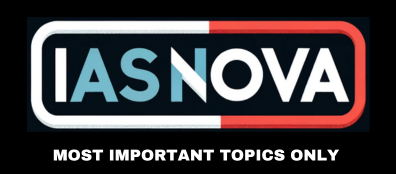Consumer rights and consumer awareness are critical elements that contribute to the protection of buyers in the marketplace and the promotion of fair trade practices. Here’s a detailed examination of this domain:
Understanding Consumer Rights
Consumer rights are the legal entitlements that consumers have when purchasing goods and services, which protect them against fraud and unfair business practices. These rights are based on the premise that consumers are in a weaker position in the marketplace.
The Eight Basic Consumer Rights
- Right to Satisfaction of Basic Needs: Access to basic and essential goods and services.
- Right to Safety: Protection against products, production processes, and services that are hazardous to health or life.
- Right to Information: To be given the facts needed to make an informed choice, and to be protected against dishonest or misleading advertising and labeling.
- Right to Choose: Access to a variety of products and services at competitive prices.
- Right to Be Heard: Consumer interests will receive full and sympathetic consideration in the formulation of government policy.
- Right to Redress: To receive a fair settlement of just claims, including compensation for misrepresentation, shoddy goods, or unsatisfactory services.
- Right to Consumer Education: To acquire knowledge and skills necessary to be an informed consumer.
- Right to a Healthy Environment: To live and work in an environment that is non-threatening to the well-being of present and future generations.
Principles of Consumer Awareness
Consumer awareness involves understanding these rights as well as the principles of consumer protection, which include:
- Transparency: Clear and honest information should be provided about products and services.
- Accountability: Sellers should be accountable for the goods and services they provide.
- Sustainable Consumption: Encouraging consumption that is environmentally and socially responsible.
- Consumer Choice: Preserving a diverse market with options for consumers.
Interventions to Raise Consumer Awareness
Various strategies and interventions are designed to educate consumers and advocate for their rights:
Education and Information Campaigns
Organizations run public service announcements (PSAs), workshops, and educational programs to inform consumers about their rights.
- Example: The Federal Trade Commission (FTC) in the United States runs campaigns to educate consumers on issues like identity theft, online scams, and consumer rights.
Labeling and Information Disclosure
Laws and regulations require clear labeling of products, indicating ingredients, manufacturing dates, expiration dates, and safety warnings.
- Case Study: The European Union has strict labeling requirements for food products, including allergen information and nutritional content.
Legal and Regulatory Measures
Governments establish regulatory bodies to enforce consumer protection laws and take action against violators.
- Example: The Consumer Financial Protection Bureau (CFPB) in the U.S. regulates financial products and services, ensuring consumers are treated fairly by banks, lenders, and other financial institutions.
Consumer Advocacy Groups
Non-governmental organizations (NGOs) play a significant role in advocating for consumer rights and helping consumers make informed decisions.
- Example: Consumers International is a world federation of consumer groups that promotes the rights and interests of consumers.
Access to Justice
Ensuring consumers have access to legal remedies and dispute resolution mechanisms is crucial.
- Example: Small claims courts and consumer ombudsman services enable consumers to pursue redress without the need for costly legal battles.
Technology and Consumer Awareness
The use of technology, including mobile apps and online platforms, helps to disseminate information rapidly and widely.
- Example: The ‘Do Not Pay’ app helps consumers fight unfair parking fines and process small claims without a lawyer.
Other Related Topics
Consumer Behavior
Understanding consumer behavior—why consumers make the purchase decisions they do—is vital for protecting them. It involves studying psychological, social, and economic factors that influence buying decisions.
Ethical Consumption
Ethical consumption advocates for purchasing products that are made ethically and sustainably, considering the workforce, the environment, and animal welfare.
- Example: Fair Trade certification aims to ensure that products are produced under fair labor conditions and for fair wages.
Consumerism
Consumerism is a social movement that empowers consumers to demand better quality products and services, fair treatment, and truthful information from companies.
- Example: Ralph Nader’s work in the 1960s and 1970s in the United States is a seminal example of consumerism leading to significant changes in automotive safety standards.
Conclusion
Consumer rights and awareness are pillars of a functioning market economy. They not only protect individuals from fraud and unfair practices but also promote consumer confidence, which is essential for economic stability and growth. By ensuring that consumers are informed, respected, and valued, societies can support sustainable development and empower individuals to make better choices for themselves and the world around them.

